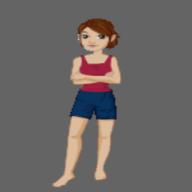What is "Determiner"?
Is "the" a determiner?
But isn't "the" an article?
English-Grammar-Parts of speech-Determiner
2007-01-05 5:52 am
回答 (4)
2007-01-05 7:37 pm
✔ 最佳答案
The Article is only one of the determiners. 英文文法同一樣東西有好多種叫法,中小學級
和大學級以上的文法,如語言學,又不同叫
法,不同理論學說又不同叫法,其實都是講
同一樣野。不理點叫,最緊要識用用得對,
唔識叫也不是問題。不要給這些
LINGUISTICS JARGONS 嚇倒。識叫也不代
表用得對,是嗎?
圖片參考:http://hk.yimg.com/i/icon/16/14.gif
determiner
圖片參考:http://hk.yimg.com/a/hk/lingauphone/240x400_online3_122906.jpg
圖片參考:http://hk.yimg.com/i/dic/019.gif
]
DJ: [
圖片參考:http://hk.yimg.com/i/dic/018.gif
] n.1. 【語】限定詞
Determiner From Wikipedia, the free encyclopedia
A determiner is a noun modifier that expresses the reference of a noun or noun phrase in the context, including quantity, rather than attributes expressed by adjectives. This part of speech is defined in some languages, such as in English, as it is distinct from adjectives grammatically, though most English dictionaries still identify the determiners as adjectives. Determiners include articles, demonstratives, possessive determiners, quantifiers, cardinal numbers, and ordinal numbers.
English determiners Determiners form a closed class of words that number (exclusive of cardinals and ordinals) about 50 in English and include:
Articles: a, an, theDemonstratives: this, that, these, those, which, etc. (when used with noun phrases)Possessives: my, our, your, her, his, its, their, whose, and possessive nouns (John's, the teacher's)Quantifiers: all, few, many, several, some, every, each, any, no etc.Cardinal Numbers: one, two, fifty, etc.Ordinals: first, second, last, next, etc. The words some, one, and no are also used in ways that are demonstrative not quantitative: "Roger Clemens is some ball player." "A diplomat who says 'no' is no diplomat."
For a mostly complete list, see Wiktionary.
Differences from adjectives Traditional English grammar does not include determiners and calls most determiners adjectives. There are, however, a number of key differences between determiners and adjectives.
In English, articles, demonstratives, and possessive determiners cannot co-occur in the same phrase, while any number of adjectives are typically allowed. A big green expensive English book* The his book Articles cannot occur alone in complement position, adjectives can. He is happy.* He is the. Most determiners are not gradable, while adjectives typically are. happy, happier, happiest Adjectives cannot stand alone as a subject or object in a fused-head construction, while determiners typically can. Each likes something different.* Big likes something different. Adjectives are licensed independent of number, while many determiners are licensed only for singular or for plural nouns. a big person / big peoplemany people / * many person Adjectives are never obligatory, while determiners often are.
Differences from pronouns Determiners such as this, all, and some can often occur without a noun. In traditional grammar, these are called pronouns. There are, however, a number of key differences between such determiners and pronouns.
Pronouns may occur in tag questions. Determiners can't. This is delicious, isn't it?*This is delicious, isn't this? In phrasal verbs, pronouns must appear between the verb and particle. Determiners may occur after the particle. pick it up*pick up itpick this uppick up this
http://en.wikipedia.org/wiki/Determiner
參考: yahoo dict + wiki
2007-01-05 1:11 pm
決定者
成句意思系話英文既GRAMMAR系決定你講野好唔好既關鍵
成句意思系話英文既GRAMMAR系決定你講野好唔好既關鍵
2007-01-05 8:28 am
2007-01-05 5:56 am
Determiner = 限定詞
收錄日期: 2021-04-12 22:38:42
原文連結 [永久失效]:
https://hk.answers.yahoo.com/question/index?qid=20070104000051KK04444


